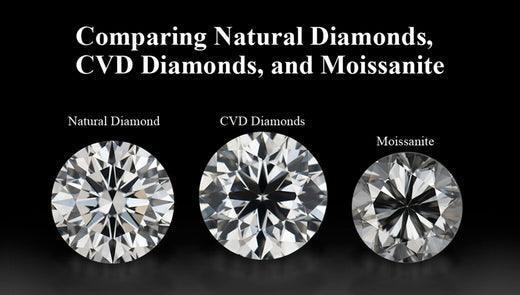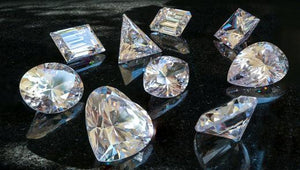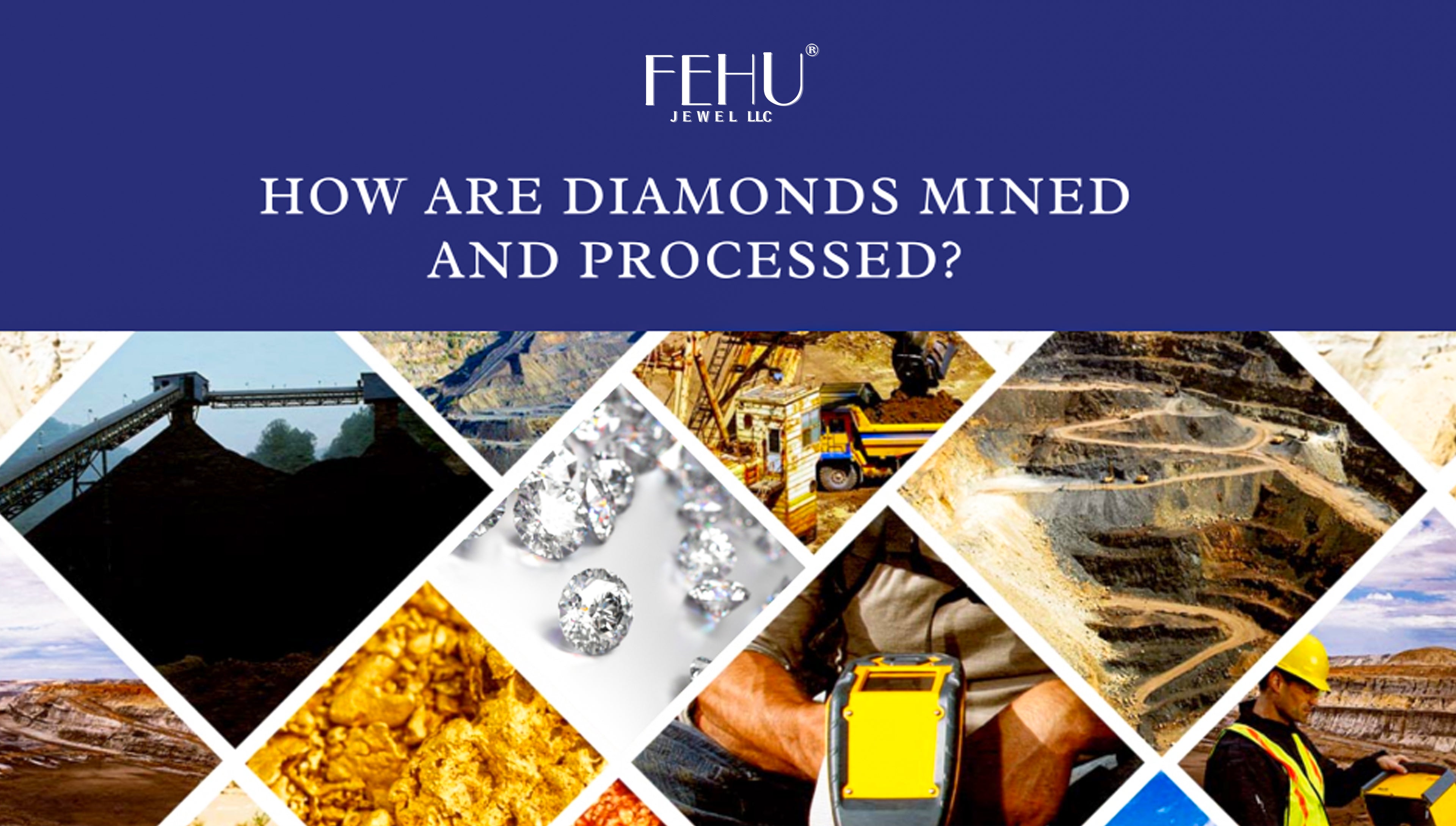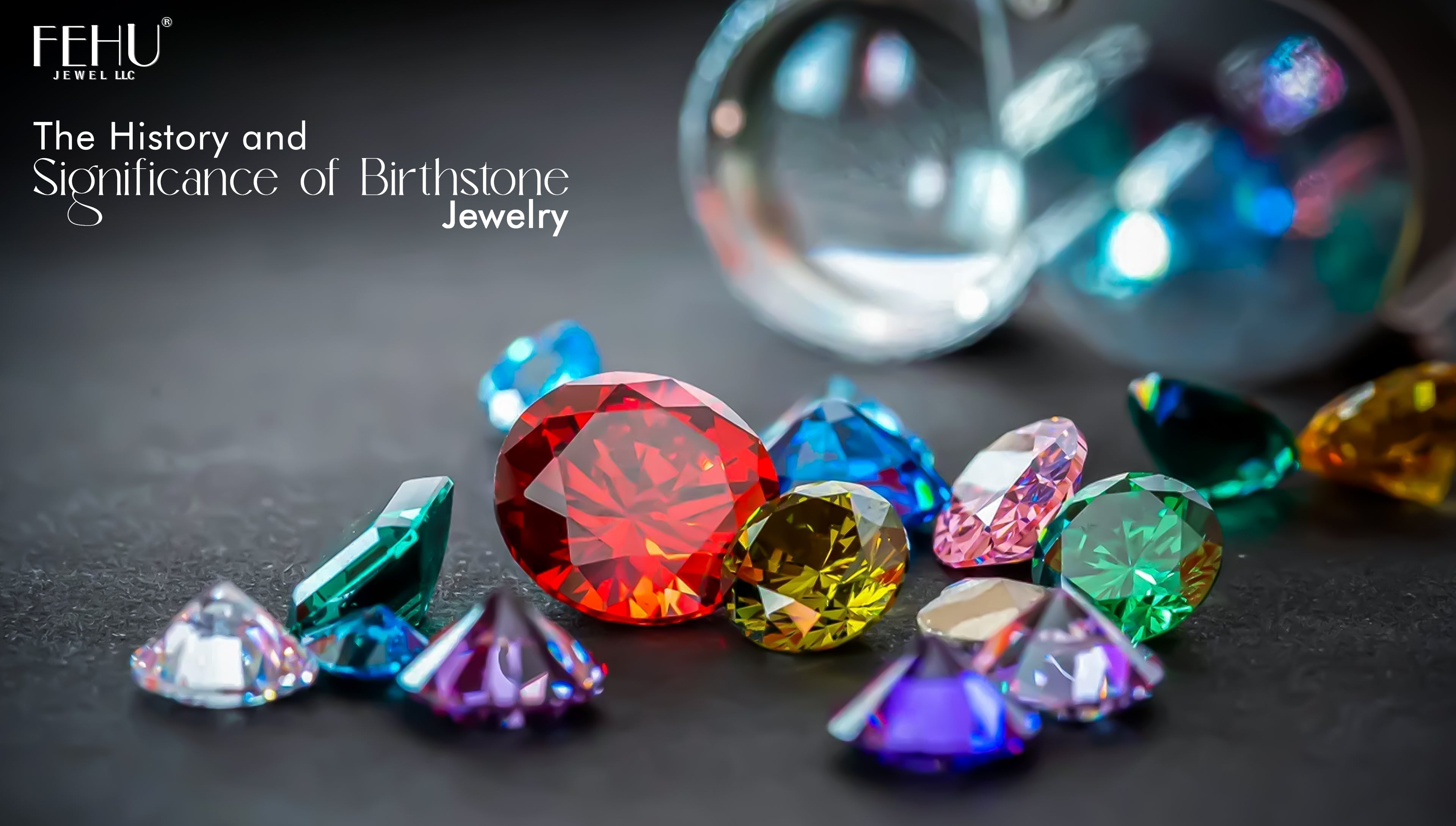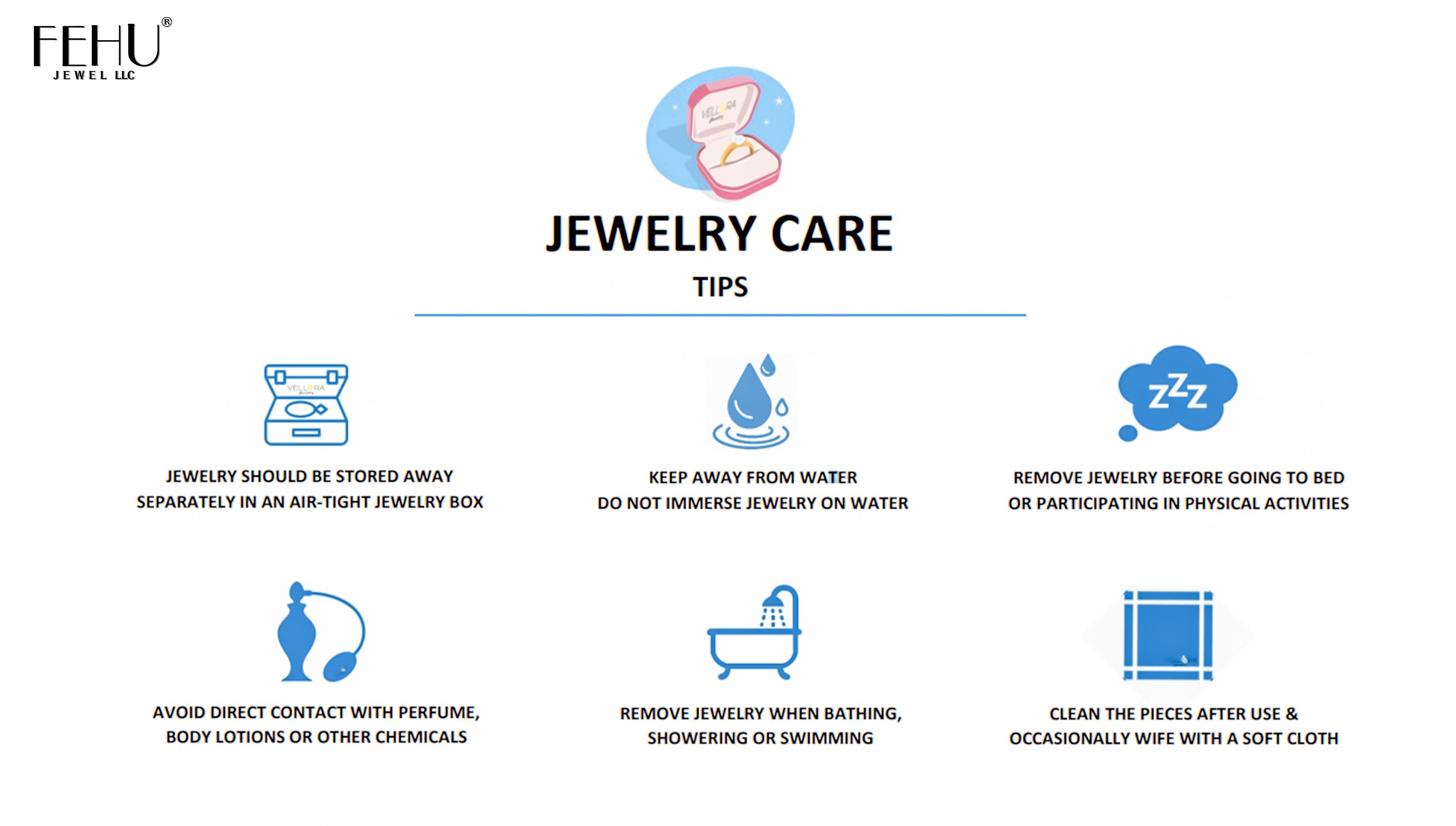Introduction
When shopping for diamonds or diamond alternatives, it's essential to understand the differences between natural diamonds, CVD (Chemical Vapor Deposition) diamonds, and moissanite. Each has its unique properties, benefits, and considerations. This guide will help you navigate through these options to make an informed decision for your next purchase.
Natural Diamonds
Formation and Characteristics
Common precious stones are shaped over billions of long time beneath seriously warm and weight profound inside the Earth's mantle. These conditions result in a crystalline structure composed entirely of carbon atoms, giving natural diamonds their renowned hardness and brilliance.
Pros of Natural Diamonds:
- Unmatched Brilliance: Due to their natural formation, they exhibit a unique sparkle.
- Rarity and Value: Natural diamonds hold significant value and are often seen as investment pieces.
- Symbolism: They are traditionally associated with eternal love and commitment, making them a popular choice for engagement rings.
CVD Diamonds
Formation and Characteristics
CVD diamonds are created in a laboratory using Chemical Vapor Deposition. This process involves placing a carbon-rich gas mixture into a chamber and heating it to form a diamond layer by layer. CVD diamonds are chemically, physically, and optically identical to natural diamonds.
Pros of CVD Diamonds:
- Cost-Effective: They are generally less expensive than natural diamonds.
- Ethically Sourced: As they are lab-grown, CVD diamonds avoid the ethical issues associated with diamond mining.
- Quality Control: The controlled environment allows for consistent quality and fewer impurities.
Cons of CVD Diamonds:
- Perception: Some people may view lab-grown diamonds as less prestigious than natural diamonds.
- Resale Value: CVD diamonds may not retain their value as well as natural diamonds.
Moissanite
Formation and Characteristics
Moissanite is a gemstone that was first identified in a meteorite crater. Today, it is primarily synthesized in laboratories due to its rarity in nature. Moissanite is composed of silicon carbide and is known for its exceptional brilliance and fire.
Pros of Moissanite:
- Affordability: Moissanite is significantly less expensive than both natural and lab-grown diamonds.
- Brilliance: It exhibits more fire (rainbow light dispersion) than diamonds, making it extremely sparkly.
- Durability: Moissanite is almost as hard as diamonds, making it suitable for everyday wear.
Cons of Moissanite:
- Different Look: The increased fire can make moissanite look different from diamonds, which may not appeal to everyone.
- Perception: It is not a diamond and may not carry the same status or emotional significance.
Choosing the Right
When deciding between natural diamonds, CVD diamonds, and moissanite, consider factors such as budget, ethical preferences, and the intended use of the gemstone. Each option offers unique benefits, ensuring that there is a perfect choice for every buyer.

